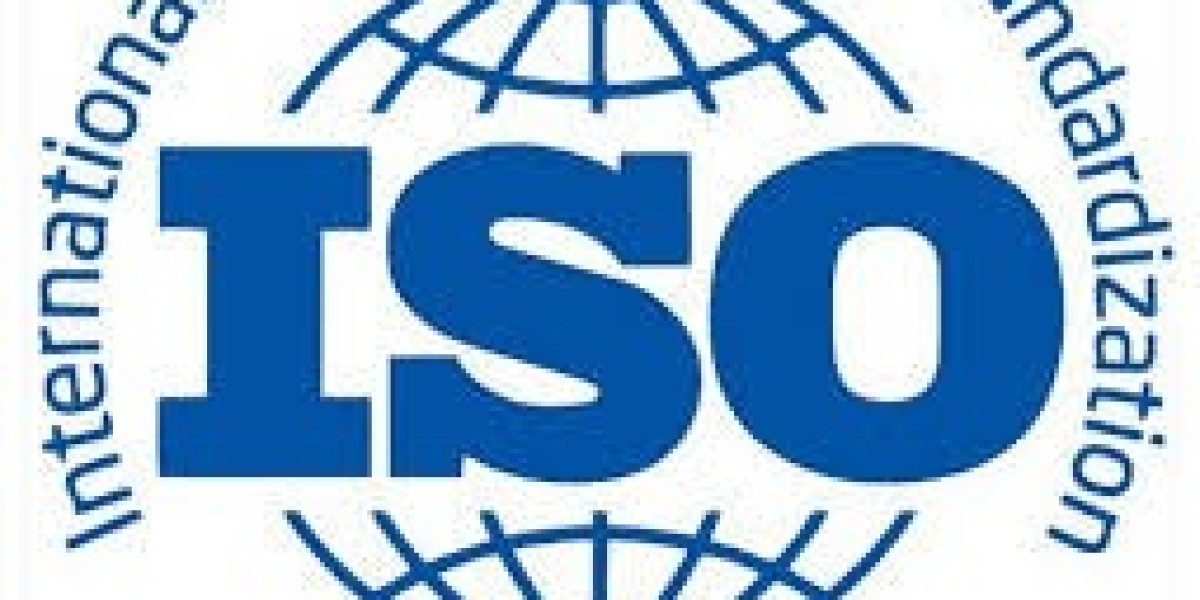In today’s world, environmental sustainability is no longer just a trend; it’s a necessity. Businesses that adopt environmental management systems like ISO 14001 are not only improving their operational efficiency but also contributing to the global effort to mitigate environmental challenges. A key element in the success of ISO 14001 is engaging employees at all levels of the organization in environmental initiatives. ISO 14001 auditor training is an essential tool for those tasked with implementing and managing these initiatives effectively. By providing employees with the knowledge and skills needed to understand and contribute to sustainability efforts, organizations can foster a culture of environmental responsibility.
For organizations in Pakistan, ISO 14001 auditor training offers a robust framework for building an environmentally responsible workplace. To successfully implement ISO 14001, companies must ensure that employees are not just aware of environmental policies, but are actively involved in their execution. Engaging employees in ISO 14001 environmental initiatives is essential for creating lasting change, improving environmental performance, and enhancing the organization’s reputation.
1. Understanding ISO 14001 and Employee Engagement
1.1 What is ISO 14001?
ISO 14001 is an internationally recognized standard for Environmental Management Systems (EMS). It helps organizations establish, implement, and maintain practices that reduce environmental impact, comply with regulations, and continually improve environmental performance. The standard includes guidelines for creating a sustainable strategy, reducing waste, optimizing energy use, and assessing environmental risks across operations.
ISO 14001 auditor training is an excellent way for professionals to gain in-depth knowledge of these principles. Through this training, employees learn how to conduct audits, assess environmental risks, and implement effective sustainability practices within their respective roles.
1.2 Why Employee Engagement Matters
Employee engagement is a crucial factor in the successful implementation of ISO 14001. Employees are the ones who carry out day-to-day operations, and their involvement is vital to achieving the sustainability goals set by the organization. From reducing waste to improving energy efficiency, every employee can contribute to the organization’s environmental performance.
Through ISO 14001 certification in Pakistan, businesses are encouraged to create a culture of sustainability that involves employees at all levels. Employee engagement helps to build a sense of ownership, making sustainability a shared goal within the company.
2. Steps to Engage Employees in ISO 14001 Initiatives
2.1 Start with Comprehensive Training
The first step in engaging employees in ISO 14001 environmental initiatives is providing ISO 14001 auditor training. By equipping employees with the knowledge of environmental management practices, the organization ensures they have the skills to understand and implement the ISO 14001 framework.
ISO 14001 certification in Pakistan can help employees at various levels of the organization gain a clear understanding of the principles behind sustainability initiatives. Training should cover the basics of ISO 14001, including how it benefits the organization, the environment, and the employees themselves. This foundation allows employees to see how their roles contribute to the broader goals of the organization and the planet.
2.2 Set Clear and Measurable Sustainability Goals
To effectively engage employees, it is crucial to set clear and measurable sustainability goals that align with the company’s ISO 14001 objectives. When employees know what they are working toward, it becomes easier for them to focus their efforts and track progress.
Setting goals such as reducing energy consumption, minimizing waste, or increasing the recycling rate helps employees understand how their actions can directly impact the organization’s sustainability efforts. ISO 14001 auditor training equips employees with the tools to assess and monitor progress toward these goals.
2.3 Involve Employees in Decision-Making
One of the most effective ways to engage employees in environmental initiatives is to involve them in decision-making processes. Employees should feel that their input is valued when it comes to implementing sustainable practices. This could include brainstorming sessions, feedback loops, or even sustainability committees that represent various departments.
Creating a collaborative environment where employees can contribute ideas on how to improve sustainability fosters a sense of ownership and accountability. In turn, this increases their commitment to the organization's ISO 14001 initiatives. Employees who are part of the decision-making process are more likely to be proactive in implementing sustainable changes.
2.4 Establish a Green Team
A Green Team is a group of employees dedicated to driving sustainability initiatives within the organization. These teams can act as ambassadors for ISO 14001, helping to raise awareness, implement projects, and keep the entire workforce engaged. Members of the Green Team can receive advanced ISO 14001 auditor training to further develop their expertise and help guide others in the organization.
The Green Team’s responsibilities can include organizing sustainability challenges, identifying new eco-friendly initiatives, and reporting progress on the organization’s environmental goals. Having a dedicated group of employees who are passionate about sustainability can significantly boost engagement and the success of ISO 14001 initiatives.
2.5 Communicate and Celebrate Successes
Regular communication is essential for maintaining employee engagement. Employees should be informed about the organization’s sustainability progress, including any successes and challenges. Celebrating achievements, whether it’s reducing waste, achieving energy savings, or reaching a sustainability milestone, boosts morale and motivates employees to continue their efforts.
It’s also important to provide ongoing updates about the status of the organization’s ISO 14001 goals. Regular meetings or newsletters that highlight achievements and provide feedback help employees stay connected to the larger environmental goals. Recognizing individual and team contributions to sustainability efforts is a powerful way to reinforce the organization’s commitment to environmental stewardship.
3. Creating a Long-Term Culture of Sustainability
3.1 Make Sustainability Part of the Corporate Culture
To truly engage employees, sustainability must be integrated into the corporate culture. This goes beyond just ISO 14001 compliance—it’s about creating an environment where environmental responsibility is a core value. Leadership must demonstrate a commitment to sustainability through their actions and decisions.
When sustainability is embedded in the organizational culture, it becomes a natural part of the work environment. Employees feel empowered to contribute and are more likely to take personal responsibility for reducing their environmental impact. ISO 14001 certification in Pakistan can help organizations create this long-term sustainability culture by establishing practices that are aligned with both environmental goals and business objectives.
3.2 Encourage Employee Innovation
Employees often have valuable insights into how operations can be made more sustainable. Encouraging employee innovation is a great way to tap into their creativity and engage them in problem-solving. Whether it’s through suggestion programs, brainstorming sessions, or pilot projects, allowing employees to experiment with new sustainability ideas fosters an environment of continuous improvement.
ISO 14001 auditor training can provide employees with the knowledge they need to assess the effectiveness of new ideas and integrate them into the organization’s environmental management system. Encouraging innovation not only boosts employee engagement but also leads to more effective and efficient sustainability solutions.
3.3 Provide Recognition and Incentives
Employee engagement can be significantly enhanced through recognition and incentives. Publicly recognizing individuals or teams who make substantial contributions to sustainability efforts can inspire others to get involved. Offering incentives such as bonuses, additional time off, or company-wide recognition can motivate employees to go above and beyond in their environmental responsibilities.
The impact of incentives can be amplified when tied directly to the organization’s ISO 14001 goals. This can include rewarding employees for implementing practices that contribute to reducing waste, lowering emissions, or improving resource efficiency.
Conclusion
Engaging employees in ISO 14001 auditor training and environmental initiatives is a vital aspect of building a sustainable, environmentally conscious organization. By fostering a culture of sustainability, companies can create a shared responsibility for environmental performance, making employees active participants in the process.
For businesses in Pakistan seeking ISO 14001 certification in Pakistan, it is essential to provide employees with the right tools, training, and opportunities to contribute to sustainability goals. Involving employees in the process helps drive long-term environmental change, ensuring that ISO 14001 initiatives are not just a compliance measure but an integral part of the company’s culture. With consistent effort and engagement, organizations can build a more sustainable future while fostering a workforce that is proud to contribute to environmental stewardship.









